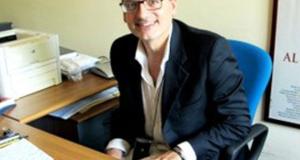
GAETANO LETTIERI
Email:
gaetano.lettieri@uniroma1.it
Structure:
Dipartimento di STORIA ANTROPOLOGIA RELIGIONI ARTE SPETTACOLO
SSD:
HIST-04/B
Notizie
Le lezioni dei corsi del prof. Lettieri inizieranno giovedì 16 ottobre 2025.
----------------------------------------------------------------------------------------------------------------------------
----------------------------------------------------------------------------------------------------------------------------
Insegnamenti
| Codice insegnamento | Insegnamento | Anno | Semestre | Lingua | Corso | Codice corso | Curriculum |
|---|---|---|---|---|---|---|---|
| 1023715 | STORIA DELLE DOTTRINE TEOLOGICHE II A | 1º | 1º | ITA | Filosofia | 33555 | Idealismo tedesco e filosofia moderna (percorso formativo valido anche ai fini del conseguimento del doppio titolo italo-tedesco) |
| 1023712 | STORIA DELLE DOTTRINE TEOLOGICHE I A | 3º | 2º | ITA | Filosofia | 33525 | Curriculum unico |
| 1024853 | STORIA DEL CRISTIANESIMO II A | 1º | 2º | ITA | Culture e Religioni | 33552 | Curriculum unico |
| 1023715 | STORIA DELLE DOTTRINE TEOLOGICHE II A | 1º | 1º | ITA | Filosofia | 33555 | Filosofia |
| 1024056 | STORIA DEL CRISTIANESIMO I | 1º | 1º | ITA | Storia, Antropologia, Religioni | 33538 | Storia medievale e Paleografia |
| 1024056 | STORIA DEL CRISTIANESIMO I | 1º | 1º | ITA | Storia, Antropologia, Religioni | 33538 | Storico-religioso |
| 1024056 | STORIA DEL CRISTIANESIMO I | 1º | 1º | ITA | Storia, Antropologia, Religioni | 33538 | Antropologia culturale |
| 1024056 | STORIA DEL CRISTIANESIMO I | 1º | 1º | ITA | Storia, Antropologia, Religioni | 33538 | Storia moderna e contemporanea |
| 1044802 | ERMENEUTICA DELLA SCRITTURA | 2º | 1º | ITA | Editoria e scrittura | 33546 | Curriculum unico |
